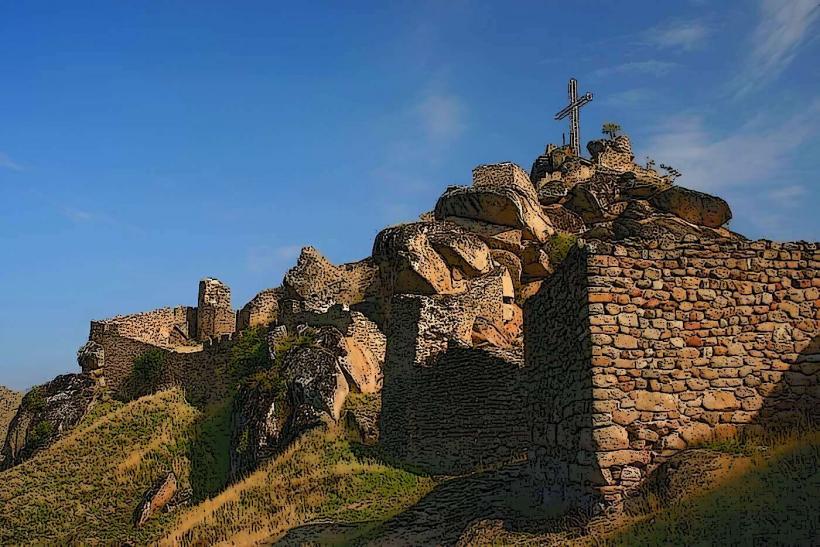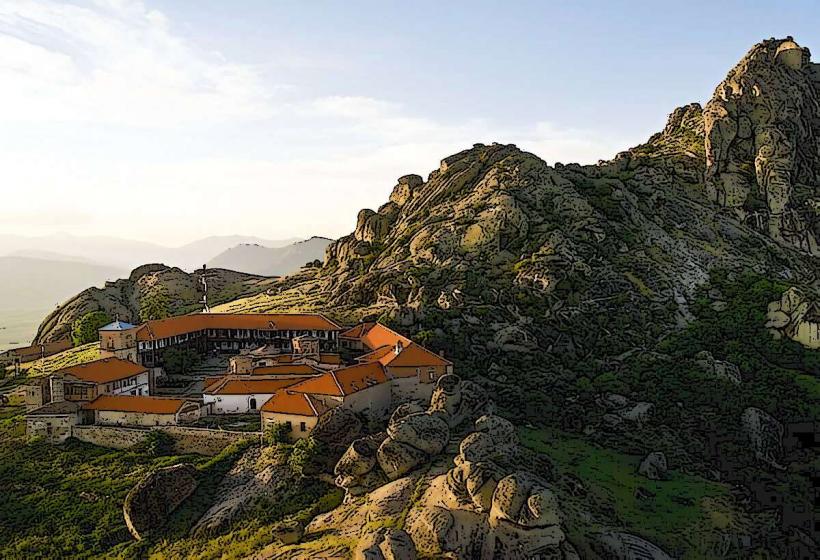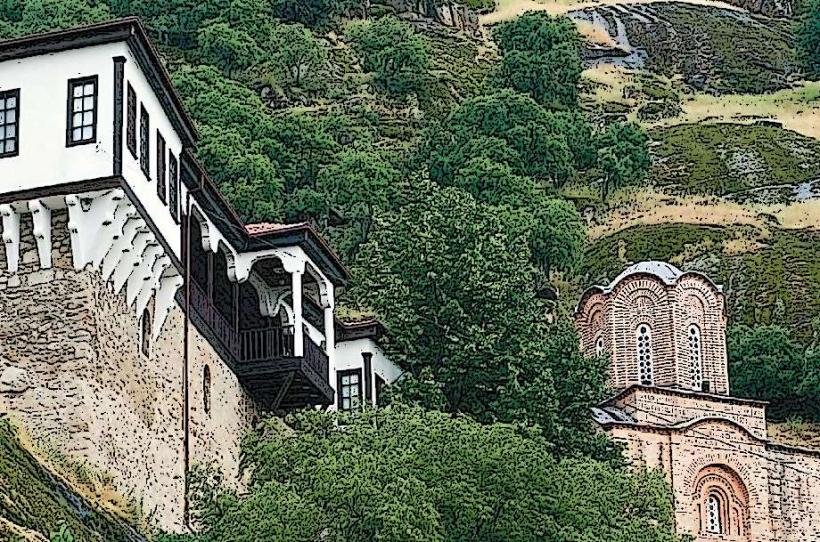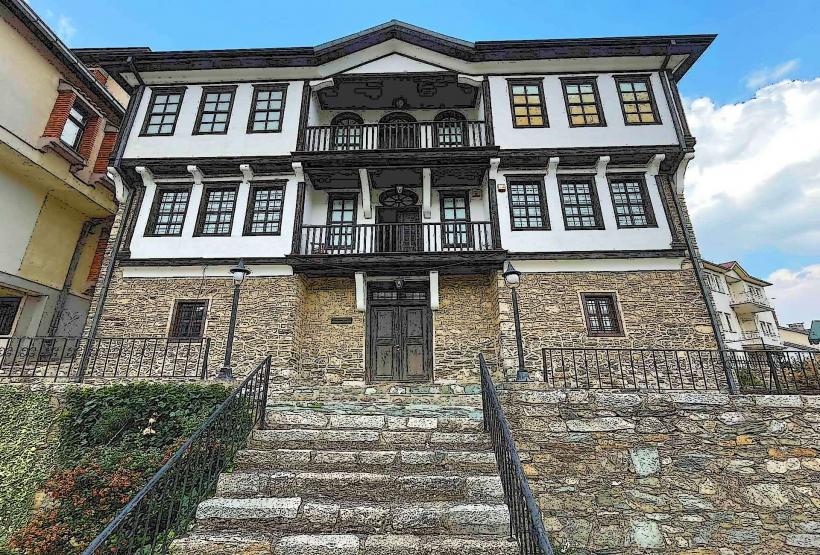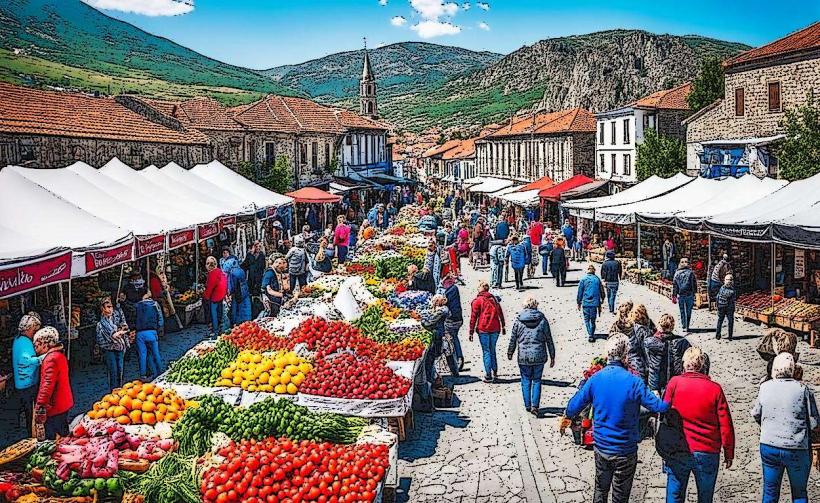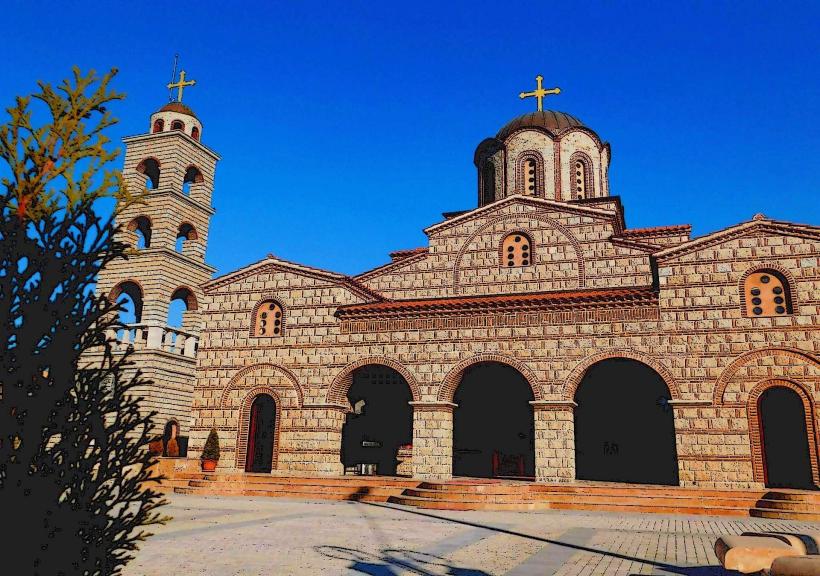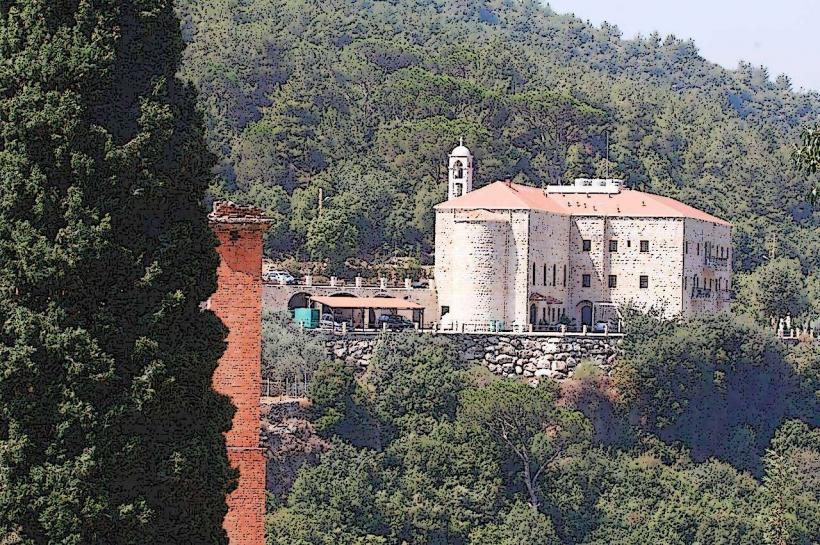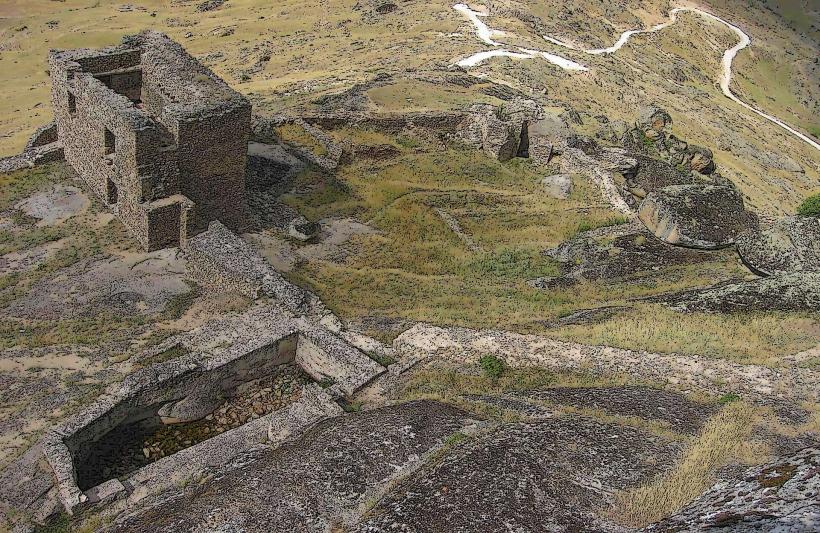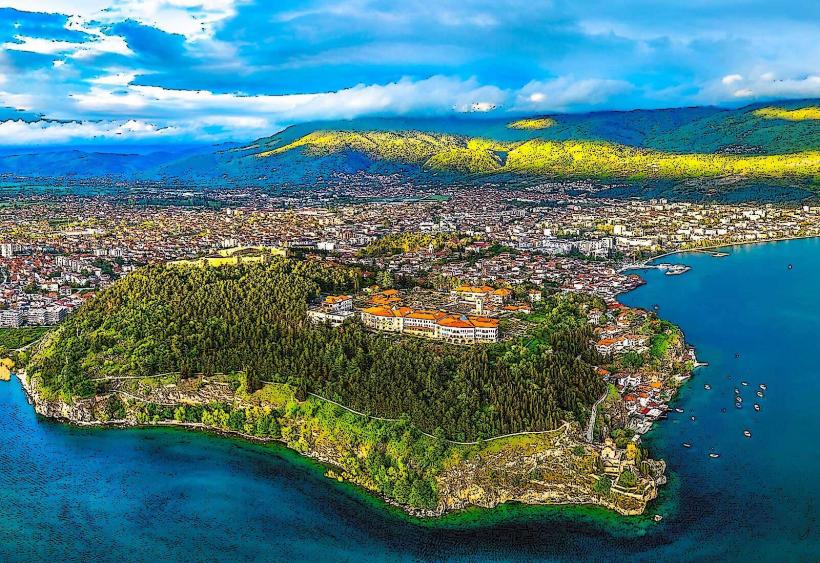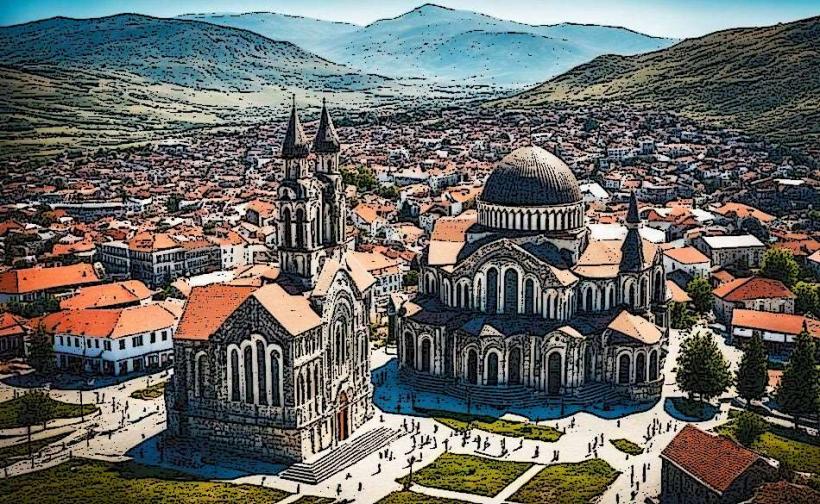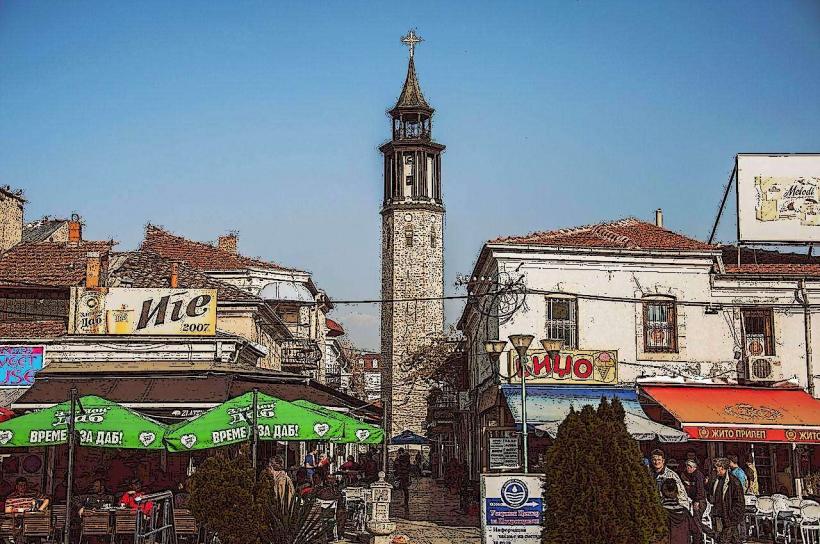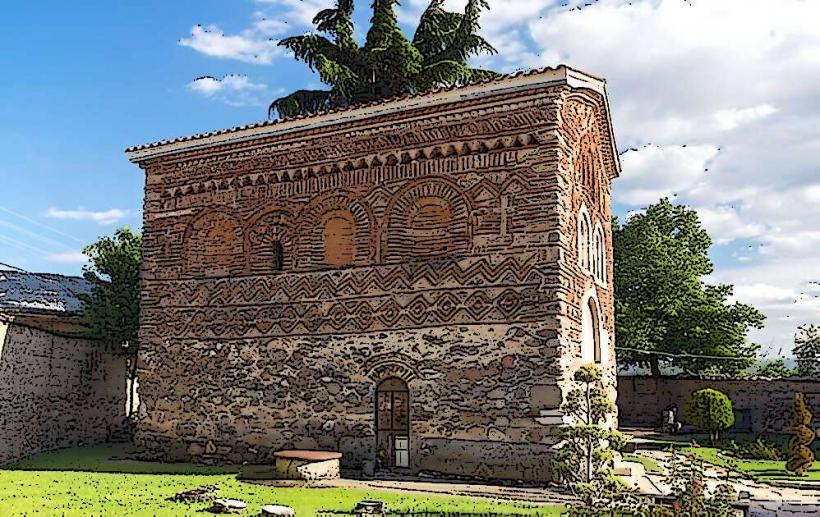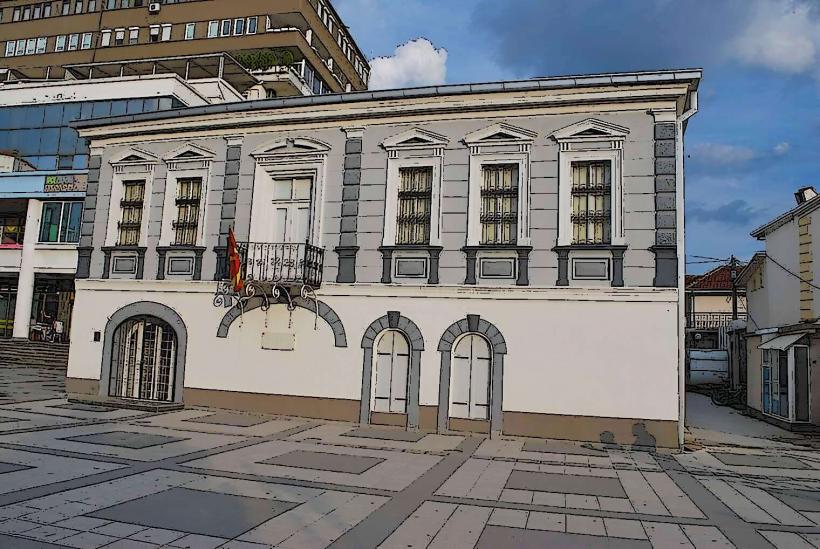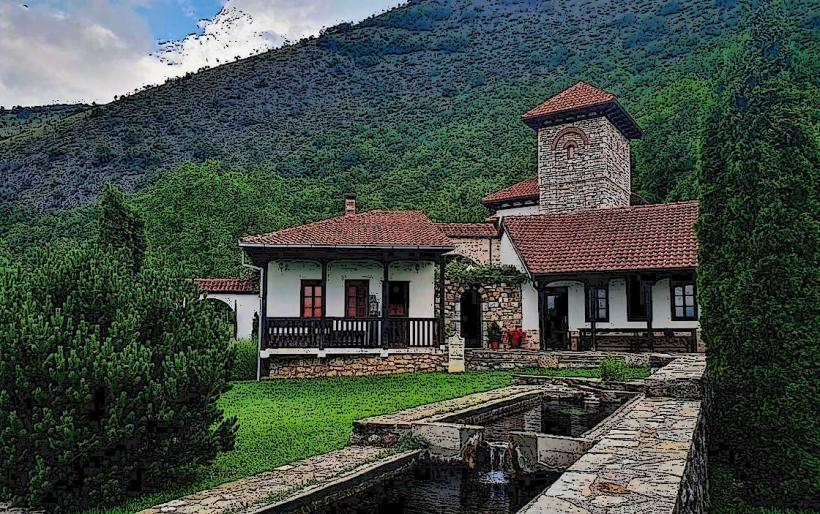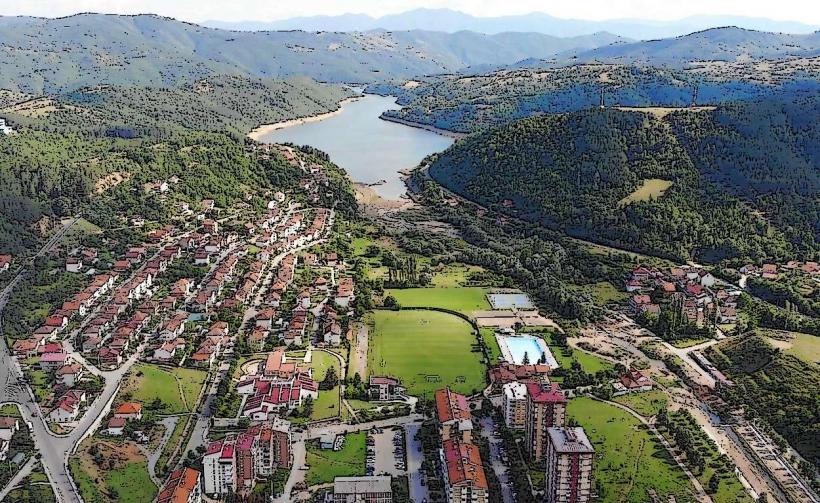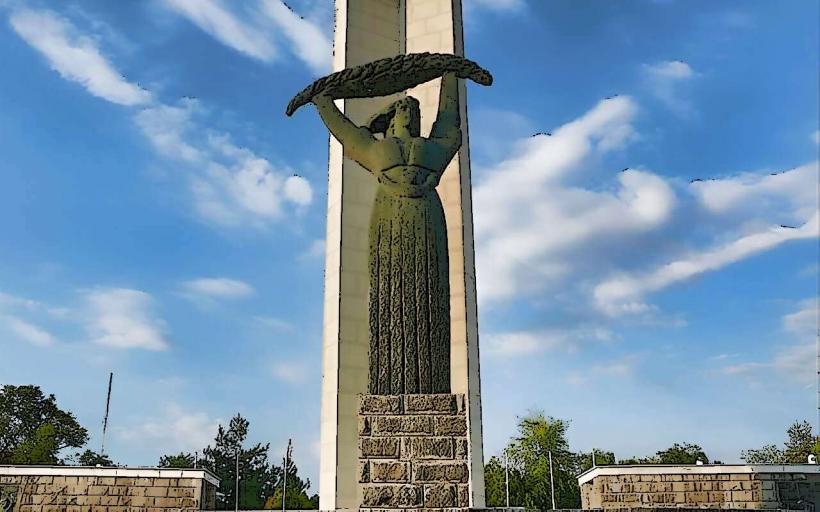Information
Landmark: Church of St. GeorgeCity: Prilep
Country: North Macedonia
Continent: Europe
Church of St. George, Prilep, North Macedonia, Europe
The Church of St. George is an Orthodox Christian church situated within the Varosh settlement of Prilep, North Macedonia. It stands on a rocky elevation directly beneath the medieval fortress known as Marko's Towers.
Visual Characteristics
The church features a single-nave, cross-in-square architectural plan, constructed primarily from rough-hewn stone blocks. Its exterior presents a robust, unadorned appearance, characteristic of medieval Macedonian ecclesiastical architecture. A central dome rises above the nave. The interior walls are extensively covered with frescoes dating from the 14th century, depicting various biblical scenes and saints, with a dominant color palette of earthy tones, blues, and reds.
Location & Access Logistics
The Church of St. George is located in the Varosh neighborhood, approximately 3 kilometers northwest of Prilep city center. Access is primarily by foot from the Varosh village, involving an uphill walk on a paved path and then a dirt trail. Limited parking is available at the base of the Varosh settlement, near the Monastery of Archangel Michael. Prilep city center is served by local bus lines, but no direct public transport reaches the church itself; a taxi or private vehicle to Varosh is required, followed by the walk.
Historical & Ecological Origin
The Church of St. George was constructed in the 13th century, with its significant fresco cycle completed in the 14th century. Its original purpose was as a place of Orthodox Christian worship and monastic life. The specific architect is not documented, typical for structures of this period. The church is a man-made religious edifice, not a natural formation.
Key Highlights & Activities
Visitors can observe the well-preserved 14th-century frescoes, which include depictions of the Lamentation of Christ and various saints. Exploring the interior of the church provides insight into medieval religious art. The church grounds offer panoramic views of the Prilep valley and the surrounding landscape.
Infrastructure & Amenities
Restroom facilities are not available directly at the church site. Limited natural shade is provided by surrounding trees. Cell phone signal (4G/5G) is generally reliable in the area. There are no food or beverage vendors immediately adjacent to the church; the nearest options are in the Varosh village or Prilep city center.
Best Time to Visit
The best time to visit for photography of the interior frescoes is during morning hours when natural light may enter, though artificial lighting is often required. The most comfortable months for the uphill walk are spring (April-May) and autumn (September-October) due to milder temperatures. There are no tide requirements as it is an inland site.
Facts & Legends
The frescoes within the Church of St. George are considered some of the finest examples of Palaiologan Renaissance art in North Macedonia, showcasing a distinct artistic style from the Byzantine period. A local tip suggests combining a visit with the hike to Marko's Towers, as the church lies directly on the path to the fortress ruins.
Nearby Landmarks
- Marko's Towers (fortress ruins): 0.1km North
- Monastery of Archangel Michael: 0.5km South-East
- Prilep Tobacco Museum: 3.0km South
- Old Bazaar (Prilep): 2.8km South

